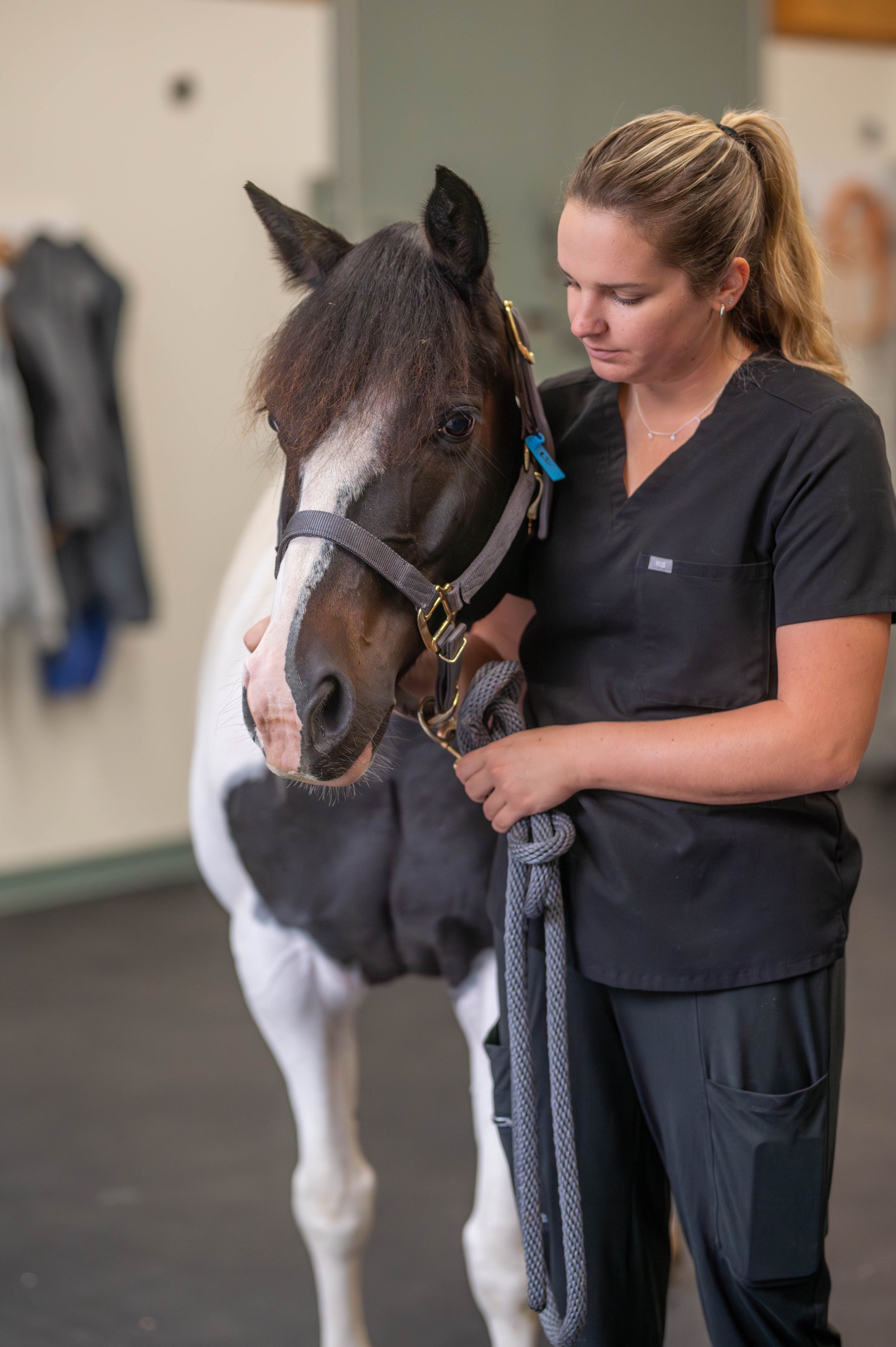
Dermatology
Equine skin diseases can be frustrating to treat, and difficult to diagnose. Additionally, they and can be contagious to other horses and sometimes even people. Our board certified dermatologist is available to consult with our veterinarians and see cases as needed.
The diagnosis of Equine atopy is a clinical diagnosis, established by eliminating all other causes of pruritus, such as parasites, bacterial or yeast infections, and food allergy. At this time, an exclusion diet is the method of choice for diagnosis of food allergy.
Once the clinical diagnosis of atopy has been made, treatment options include medical management of the pruritus, or allergy testing to identify specific allergens for avoidance and hyposensitization. Allergy testing options include serum-based in-vitro tests for allergen specific IgE (ELISA or RAST), or intradermal allergy testing. Measurement of total serum IgE is not helpful, as IgE levels are not significantly different between atopic and normal horses. Methodology for serum allergy tests varies between laboratories, and there are few studies which objectively evaluate their performance.
Additionally, inter-laboratory standardization and quality control measures are inconsistent, and there is only partial correlation between serum test results and intradermal testing. Variable test methodologies and the lack of standardization of reagents, tests, and reporting procedures create difficulty in comparison of test results or efficacy of hyposensitization based on serology. Although serologic allergy testing is easier and not as affected by steroid and antihistamine therapy as is intradermal allergy testing, false positive reactions are common.
Intradermal allergy testing is more accurate, with fewer false positive reactions. This type of allergy testing is also more physiologic, in that the organ (the skin) involved with the allergy is being tested, not just circulating antibodies. Therefore intradermal allergy testing is regarded as the test of choice to yield the most diagnostic results in atopic horses.
Between 50% and 80% of horses receiving allergy immunotherapy will exhibit at least 50% improvement in clinical signs; complete response to therapy may take 2-12 months. Efficacy of immunotherapy may anecdotally be increased by combining results of both intradermal allergy testing and allergy serology to formulate the allergen, although cost may prohibitive. Owners must understand that atopy is a lifelong problem which can be controlled but not cured.
Therapy for the atopic horse must be individualized and may include a combination of oral and topical antipruritic medications, control of secondary infections and parasites, allergen avoidance when possible, and allergy hyposensitization. With careful attention to these details, over ninety percent of atopic horses can be satisfactorily controlled.
Medication withdrawals prior to Intradermal Allergy Testing:
Unfortunately there are several drugs that interfere with the reactions of the allergens, giving us poorer test results and likely poorer response results. Therefore, we ask that horses be off the following medications:
Antihistamines 7-14 days
Injectable Steroids 6-8 weeks
Topical Steroids 7 days
Oral Steroids 4 weeks
Fish oils and flax seed 7 days
If it is not possible to have the equine patient withdrawn from medications please contact us to discuss alternatives.
Many common skin problems can be addressed by our ambulatory team.
For more complicated cases, consultation or a visit with our internal medicine specialists or our consulting board-certified dermatologist, Lara Tomich, DVM, DACVD may be warranted. Dr. Tomich is available to see appointments at the hospital and allows us to offer advanced diagnostics and care for your horse.
Diagnostic Testing Available:
Skin scraping for cytology and culture
Skin Biopsies
Intradermal skin testing

